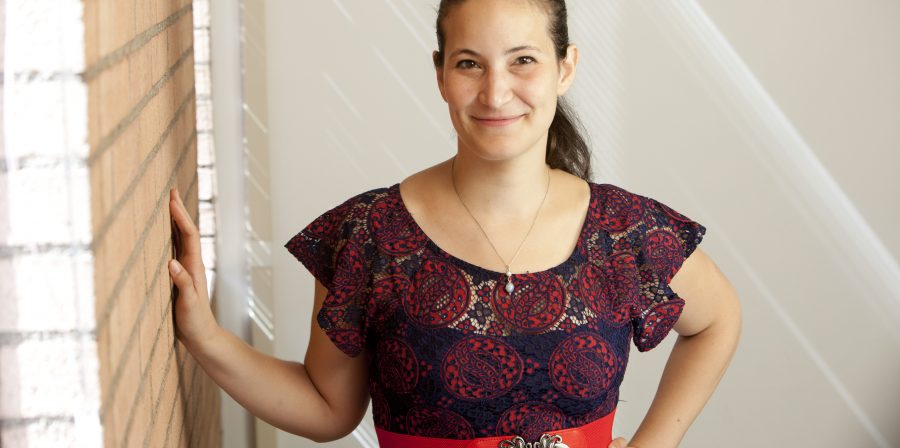
The Maximizing Investigators’ Research Award directly supports scientists, providing stability, flexibility and more opportunities for breakthroughs.
The National Institute of General Medical Sciences has awarded an R35 Maximizing Investigators’ Research Award (MIRA) to USC Leonard Davis Assistant Professor Bérénice Benayoun to support her research on mechanisms of genomic regulation and how they influence health and disease.
Rather than funding for a specific project, the MIRA for Early Stage Investigators will directly provide Benayoun with funds totaling more than $2 million over five years. The MIRA was designed to “provide investigators with greater stability and flexibility, thereby enhancing scientific productivity and the chances for important breakthroughs,” per the NIGMS website.
“Being a recipient of the R35 MIRA award is an amazing opportunity – it really validates the choices I have made in shaping my lab’s research directions, and will provide me with a flexibility to pursue where the research leads us in a way traditional NIH grant wouldn’t,” Benayoun said. “This is super exciting, and guarantees funding stability for my lab for the next 5 years!”
Benayoun’s research projects have explored many aspects of genomic regulation, including how specific mechanisms differ between the sexes and how they change with age, and her work has generated a wealth of data on often-overlooked factors affecting gene expression. She has also pioneered the use of the African turquoise killifish Nothobranchius furzeri – the shortest-lived vertebrate animal to be kept in captivity – as a valuable animal model for aging.
Over the next five years, Benayoun plans to focus her research on studying transposable genetic elements, or transposons, and how they impact health and aging. These “jumping genes” have the ability to change their location in the genome by two main methods, much like how text can be either cut and pasted or copied and pasted within a document, she explained.
“Evidence suggests that some controlled transposon activity may be needed for key biological processes,” Benayoun said, “but a loss of control over transposable elements and the resulting genomic instability is associated with dysfunction and disease.”
Historically, transposons have been understudied for two reasons: they were originally thought of as ubiquitous but unimportant “junk DNA,” and their repetitive nature and high number of copies within the genome have presented technical hurdles for the scientists trying to analyze their effects. Benayoun said her team’s strengths in leveraging big data and machine learning techniques enable them to rise to the challenge.
“Although my laboratory is young, my previous work has led us to multiple new exciting avenues of research around the regulation and impact of transposable elements in vertebrate biology that we are uniquely positioned to address, thanks to our multiple lines of expertise,” said Benayoun, who started her laboratory at the USC Leonard Davis School in 2017.
In addition to the MIRA, Benayoun’s research has been recognized by awards from numerous organizations. She received the 2021 Nathan Shock New Investigator Award from the Gerontological Society of America and was named a 2020 Pew Biomedical Scholar. She has also received the 2019 Rosalind Franklin Young Investigator Award in Mammalian Genetics, a Junior Faculty Award from the American Federation of Aging Research, and a Junior Scholar Award from the Global Consortium for Reproductive Longevity and Equality (GCRLE).
